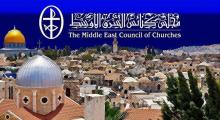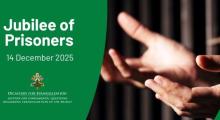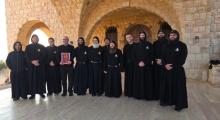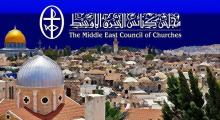Issued by the Catholic Center for Studies and Media - Jordan. Editor-in-chief Fr. Rif'at Bader - موقع أبونا abouna.org
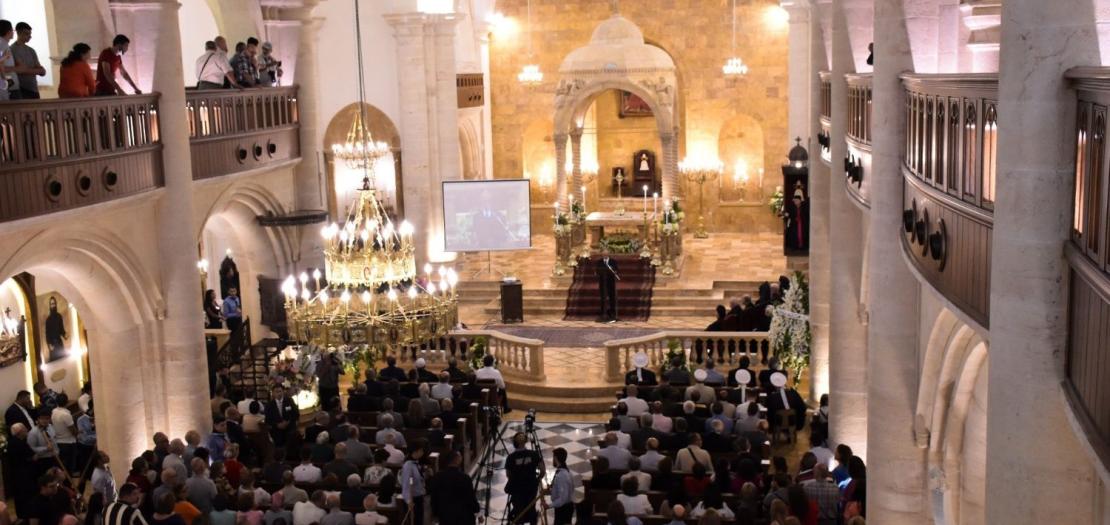
While many Christians are fearful of the Islamist groups involved in the regime change in Syria, an Argentinian-born priest who lives in Aleppo remains cautiously hopeful following a meeting with the new rulers of the country.
The sudden overthrow of the dictatorship of Bashar al-Assad, after years of regime gains in successive Russian-backed military campaigns, stunned most in the West due to the speed of the rebel advance and takeover of Damascus, the capital city of Syria; it was also unexpected for most people in the Middle Eastern nation, with the priest comparing it to an “earthquake”.
“I’ve been living and working in Aleppo for seven years. In 2023, we faced an earthquake here. But this year’s earthquake is stronger,” Father Hugo Alaniz told Crux.
The priest has been heading of the Church of Our Lady of the Annunciation in the Syrian city since 2017, after working for several years in Jordan and other Arab countries.
Before the sudden rebel offensive, they had been fighting in a war that had become a stalemate, with frequent battles, Fr. Alaniz said, leaving the Christian minority vulnerable and fearful, both then and now.
“In 2012, 2013, insurgent groups targeted Christians and other minorities in some regions. So, many people now feared that something like that could happen again and left their houses,” the priest explains.
He adds that after years of a steady deterioration of living conditions in the country under the Assad regime, the situation is catastrophic in humanitarian terms.
Argentina’s Foreign Ministry told its citizens not to travel to Syria after Al-Assad’s fall, while Argentinians who were already in the country were told to leave it as soon as possible. Fr. Alaniz, who is a member of an Argentine congregation named Institute of the Incarnate Word, refused to do so and talked to the Argentine ambassador Sebastián Zavalla by phone, explaining to him it’s not the time for missionaries to abandon their communities.
Hay’at Tahrir al-Sham (Organization for the Liberation of the Levant, or HTS), the insurgent group now ruling Syrian, is formed of Sunni militants and led by a former member of Al Qaeda, Abu Mohammad Al-Julani. Despite cutting ties with Al Qaeda in 2016, al-Julani is still viewed with suspicion by the West. The United States government considers HTS a terrorist organization.
On 9 December, Fr. Alaniz and other religious leaders managed to have an audience with members of the new government in Aleppo. The clerical group, comprising Evangelical pastors, Orthodox bishops and Catholics, was told by HTS that no church will be closed and that Christians will be respected.
“They said that minorities will be treated well,” Alaniz says. “Women will not be obliged to wear a hijab. The [official] days off will be Thursdays and Fridays, but for Christian children they will remain Saturdays and Sundays.”
Yet the fears of many Christians may well persist, having faced religious persecution at the beginning of the Syrian Civil war that started in 2011, and having dealt with subsequent difficulties.
“Many Christian families sold all they had and left the country, so their sons could avoid compulsory military service, which takes eight years,” Alaniz said.
He also witnessed his parishioners facing poverty for many years.
“A four-member family needs at least $350 each month. But a policeman or a teacher makes only $20 a month,” he said. According to the United Nations, over 90 per cent of Syrians live below the poverty line, and more than half of the population faces acute food insecurity.
“The previous government lost control over the country’s petrol during the war, so we just have electricity for two hours a day,” Alaniz said, noting also that the water provision is also frequently cut.
His church has been providing support to many parishioners over the past years. Classes are offered to support children and help them not to abandon school. University students in need can live at a lodge provided by the parish. Food kits are continually distributed.
Every kind of relief action has been difficult to conduct in Syria due to the embargo imposed by the West. Nobody knows when the current restrictions that were imposed against Al-Assad may be lifted.
“If my mother wanted to send me money, her remittance would be blocked. So, it’s not an easy situation,” Fr. Alaniz explained.
Now, however, he feels that the situation may become more peaceful as the new government establishes itself.
“They apparently have good intentions,” Fr. Alaniz says. “They told us that they will rule for the minorities. I hope so.”



